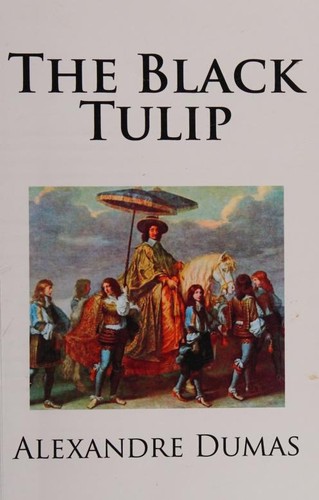Julia_98 reviewed The Black Tulip by Alexandre Dumas
Petals, Politics, and Patience: My Reflection on Alexandre Dumas’ The Black Tulip
Reading Alexandre Dumas’ The Black Tulip was like stepping into a lighter, more whimsical corner of 19th-century historical fiction — one where flowers carry as much weight as political conspiracies, and love quietly triumphs over hatred and injustice. Published in 1850, this novel combines elements of romance, history, and adventure in a way only Dumas can achieve.
Set in the Netherlands during the turbulent period of 1672, known as the “Disaster Year,” the novel opens with the violent downfall of the De Witt brothers, a grim moment in Dutch history. Yet from this darkness blooms a gentler tale centered on Cornelius van Baerle, a kind and naive tulip-grower who dreams of cultivating the first black tulip — a botanical marvel thought impossible.
What struck me most was how Dumas balances the political backdrop with the almost meditative obsession of Cornelius’ horticultural quest. Falsely accused of treason and imprisoned, …
Reading Alexandre Dumas’ The Black Tulip was like stepping into a lighter, more whimsical corner of 19th-century historical fiction — one where flowers carry as much weight as political conspiracies, and love quietly triumphs over hatred and injustice. Published in 1850, this novel combines elements of romance, history, and adventure in a way only Dumas can achieve.
Set in the Netherlands during the turbulent period of 1672, known as the “Disaster Year,” the novel opens with the violent downfall of the De Witt brothers, a grim moment in Dutch history. Yet from this darkness blooms a gentler tale centered on Cornelius van Baerle, a kind and naive tulip-grower who dreams of cultivating the first black tulip — a botanical marvel thought impossible.
What struck me most was how Dumas balances the political backdrop with the almost meditative obsession of Cornelius’ horticultural quest. Falsely accused of treason and imprisoned, Cornelius finds hope not in revolution or revenge, but in tending to a fragile bulb and forming a tender bond with Rosa, the jailer’s daughter.
The Black Tulip explores themes of perseverance, innocence, and the redemptive power of love and beauty. Though less sweeping than Dumas’ other works like The Count of Monte Cristo, it possesses a quiet charm and a sense of wonder.
For me, this novel was a reminder that history isn’t just shaped by wars and betrayals, but also by the small, persistent dreams people nurture in silence. Dumas’ elegant, slightly ironic tone lends the story both humor and warmth.
In the end, The Black Tulip is not merely about a flower — it’s about how beauty and hope can survive even in the darkest places.

